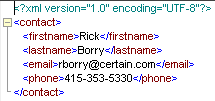The primary goal of OTA is to "transform the travel industry into a single global marketplace of products and services... through development of a commonly accepted communications process using XML". This means that the OTA will develop a common data language, which participants in the travel industry will agree to use in their data communication with one another.
The OTA publishes its XML standards twice a year (June and December), and anyone can download the current standards at after completing a free registration.
Currently, the Convention Industry Council (CIC) represents the meetings (group travel) industry to the OTA through its Accepted Practices Exchange (APEX) initiative. Members of the APEX Technology Advisory Committee (TAC), like EJ Siwek and myself, work with the OTA's Hotel Working Group (HWG) in order to produce XML standards that meeting professionals can use to communicate with their Hotel trading partners.
APEX has made progress in this work with OTA.
- The Hotel RFP standard was included in OTA's 2005B release (December 2005)
- The Rooming List standard was included in OTA's 2006A release (June 2006)
- The Event Specification Guids (ESG) will be included in OTA's 2006B release (December 2006)
Extensible Markup Language (XML) provides a text-based means to give structure to information. For example, if I tried to give my contact information to a computer system as I would to a human, e.g.
Rick Borry
rborry@certain.com
415-353-5330
It is doubtful if all systems would correctly interpret my information. If I apply XML to the information, however, then any system that understands the XML standard could correctly interpret my information, e.g.

In this manner, my contact information has structure, and the computer systems that pass the data back and forth can clearly understand that "Rick" is my first name and "Borry" is my last name.

No comments:
Post a Comment